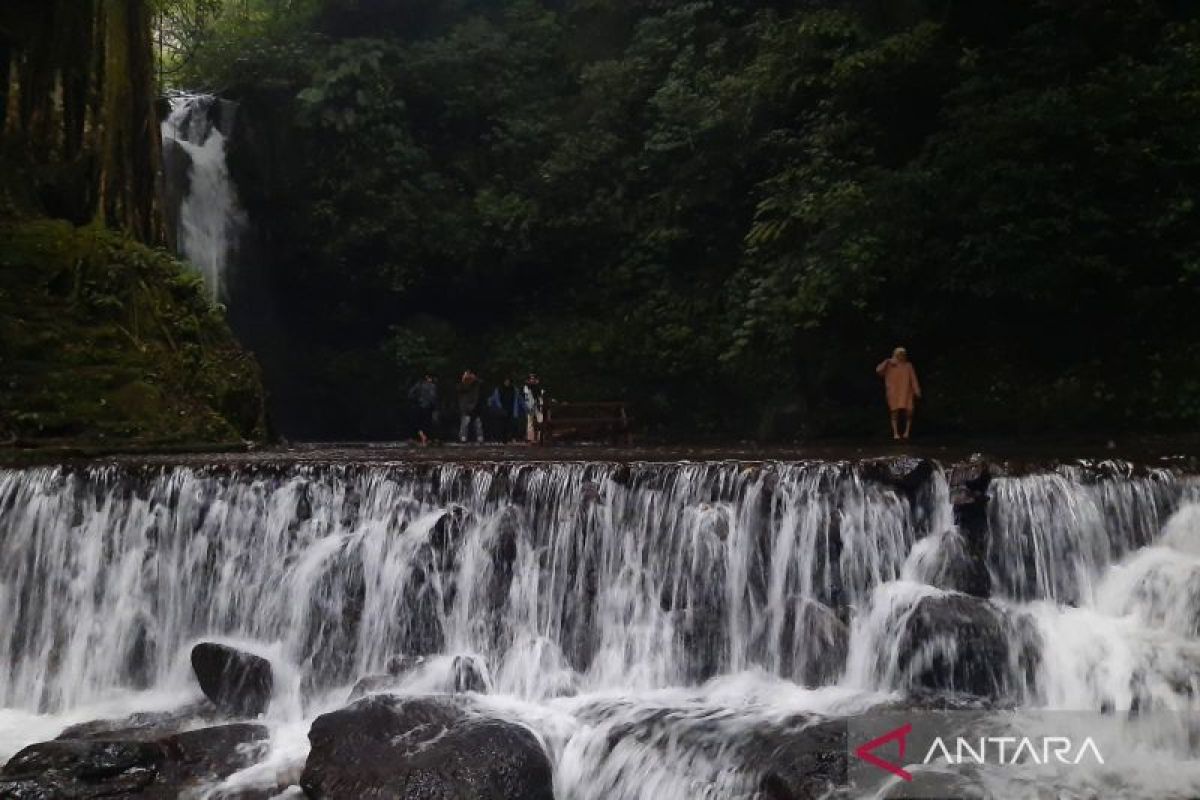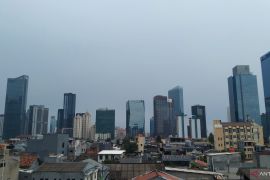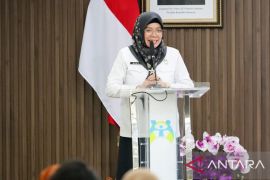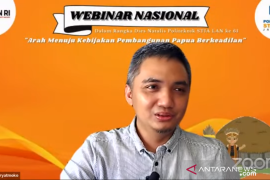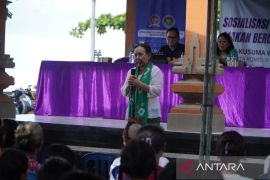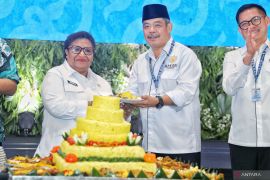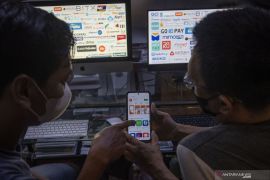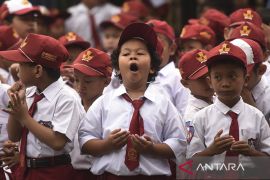Three of the four big visions are human development, sustainable economic development, and equal development that form the basis for the importance of effective and efficient water management in Indonesia.
The need for better water management in realizing Golden Indonesia 2045 arises due to limited drinking water in households, considering that access to proper drinking water has only reached 91.08 percent, and access to safe drinking water has currently reached 11.8 percent.
The ineffective and inefficient management of regional drinking water companies (PDAM) by the regional government is one of the reasons behind the problem of limited drinking water. The other causal factors are PDAM that continued to lose money due to water leaks, thereby having an impact on the lack of development or addition of pipe networks by PDAM to distribute clean water to households.
The small amount and uneven drinking water pipe network ultimately force people to depend on the use of groundwater. Although groundwater can indeed be an alternative for accessing clean water, this can threaten the sustainability of the community's environment and important assets for the country's economy.
Excessive use of groundwater causes land subsidence that ultimately leads to flooding. Flood disasters that often hit Jakarta and Semarang as well as the Demak floods that occurred not long ago disrupted economic activities, such as due to the submergence of train stations.
Another serious threat to human resources that occurs due to limited access to drinking water as a result of inefficient and ineffective water management is stunting. Water is a crucial element in maintaining the health and growth of Indonesia's young generation, especially children.
Limited availability of proper and safe water can hinder children's growth and threaten their health, thereby increasing the likelihood of not being able to achieve human resource development for the Golden Indonesia 2045.
Due to this serious impact of ineffective and inefficient water management, the government issued Presidential Instruction (Inpres) Number 1 of 2024 concerning the Acceleration of Drinking Water Supply.
This presidential instruction aims to fulfill the basic rights of the community to increase the level of their welfare, improve the quality of public health related to waterborne diseases, lower the prevalence and prevent stunting, and reduce the rate of groundwater extraction by the community.
The next question is how is the Presidential Instruction on Drinking Water a strategic step in sustainable water management?
Related news: Indonesia to share water management achievements at 10th WWF
Optimizing water infrastructure
The first strategic step taken by the government through this Presidential Instruction is to optimize the water resources (SDA) infrastructure that has been built.
Geographically, Indonesia does not lack water, but rather, has a large water surplus. However, the distribution of surplus water from natural water sources, such as rivers or reservoirs, is difficult to reach the community due to the lack of access to pipe networks. This idle capacity condition is expected to be improved through the Presidential Instruction on Drinking Water.
These efforts need to be accelerated by expanding, adding, and even building pipe networks through the construction of house connections (SR) to the community, so that water stored upstream can be distributed immediately to the community.
Efforts to accelerate the expansion and construction of SR also need to be balanced by the maintenance and rehabilitation of dams, reservoirs, drinking water supply systems (SPAM), and other water storage infrastructure that are carried out periodically to maintain the quality of water services to the community.
So far, the government has completed and operated 42 dams in Indonesian regions. Some of these reservoirs, namely Cipanas Dam, Karian Dam, and Jatigede Dam on Java Island, provide water supplies to people in cities, such as Semarang and Jakarta.
Efforts to accelerate SR and maintain water resources infrastructure can certainly enable people to have access to clean water by relying on piped water networks.
This can certainly make people gradually abandon their dependence on the use of groundwater, which can lead to improvement in groundwater levels.
Related news: Indonesia invites China to invest in water infrastructure projects
Socioeconomic transformation
This Presidential Instruction on this issue also has another strategic role, namely creating social transformation by helping prevent stunting at the community level.
Apart from the provision of adequate nutrition to pregnant women and newborn babies, the availability of drinking water is an important factor in preventing stunting, where providing sustainable access to safe drinking water for the community is the key.
Providing water through a pipe network to people's homes and public facilities can certainly improve the quality of clean water consumed by the community.
Piped water distribution allows monitoring of water quality by the central government, regional governments, and PDAMs. This practice cannot be executed on groundwater, considering that the quality of this type of water cannot be monitored and is prone to contamination from bacteria and other elements that can harm people's health.
In order to maintain the quality of piped water, the roles of the government and PDAM, as resource infrastructure operators and distributors, are very important.
Hence, the Presidential Instruction on Drinking Water can become the driver of economic transformation by providing training on the operation, maintenance, optimization, and rehabilitation (OPOR) of water infrastructure to local governments.
This is carried out to increase the ability of local governments, as operators and regulators at lower levels, to manage water efficiently and effectively. Apart from that, regional governments, as mandated by the Presidential Instruction on Drinking Water, need to continue to provide training, guidance, and management to PDAMs as distributors of piped water to the community.
This step is expected to prevent water leaks and losses experienced by PDAMs so far and to maintain the quality and quantity of piped water distributed to the community.
Through optimal management and service delivery, local governments and PDAMs can make water supply a sustainable economic source for regional development, especially by ensuring the quality and quantity of adequate and safe water services distributed to residents' houses.
Another important aspect of the Presidential Instruction on Drinking Water is to open up opportunities for the central government to integrate all piped water service tariffs into a single national tariff. This opportunity arises because water is an important element for people's lives and the country's economy, so it requires effective and efficient water management.
Effective and efficient water management through the Presidential Instruction on Drinking Water ultimately helps in achieving the Golden Indonesia Vision 2045.
These achievements are in the form of human development through stunting prevention, sustainable economic development by local governments and PDAMs, and equal construction of water pipe networks to residents' houses throughout Indonesia.
Related news: World Water Forum means to seek drinking water solutions: Ministry
Related news: Ample water supply ensured before president starts working from IKN
Editor: Yuni Arisandy Sinaga
Copyright © ANTARA 2024
